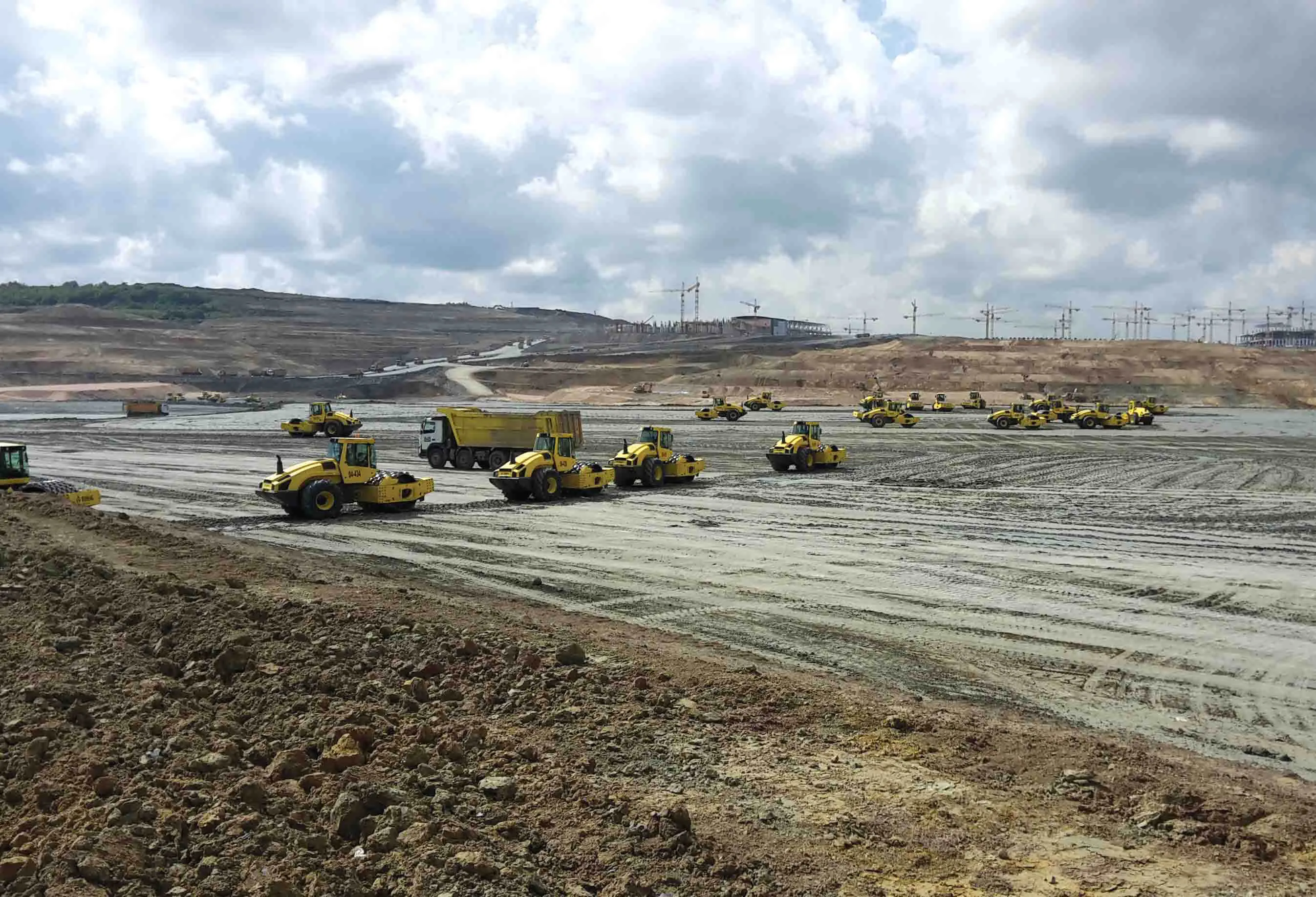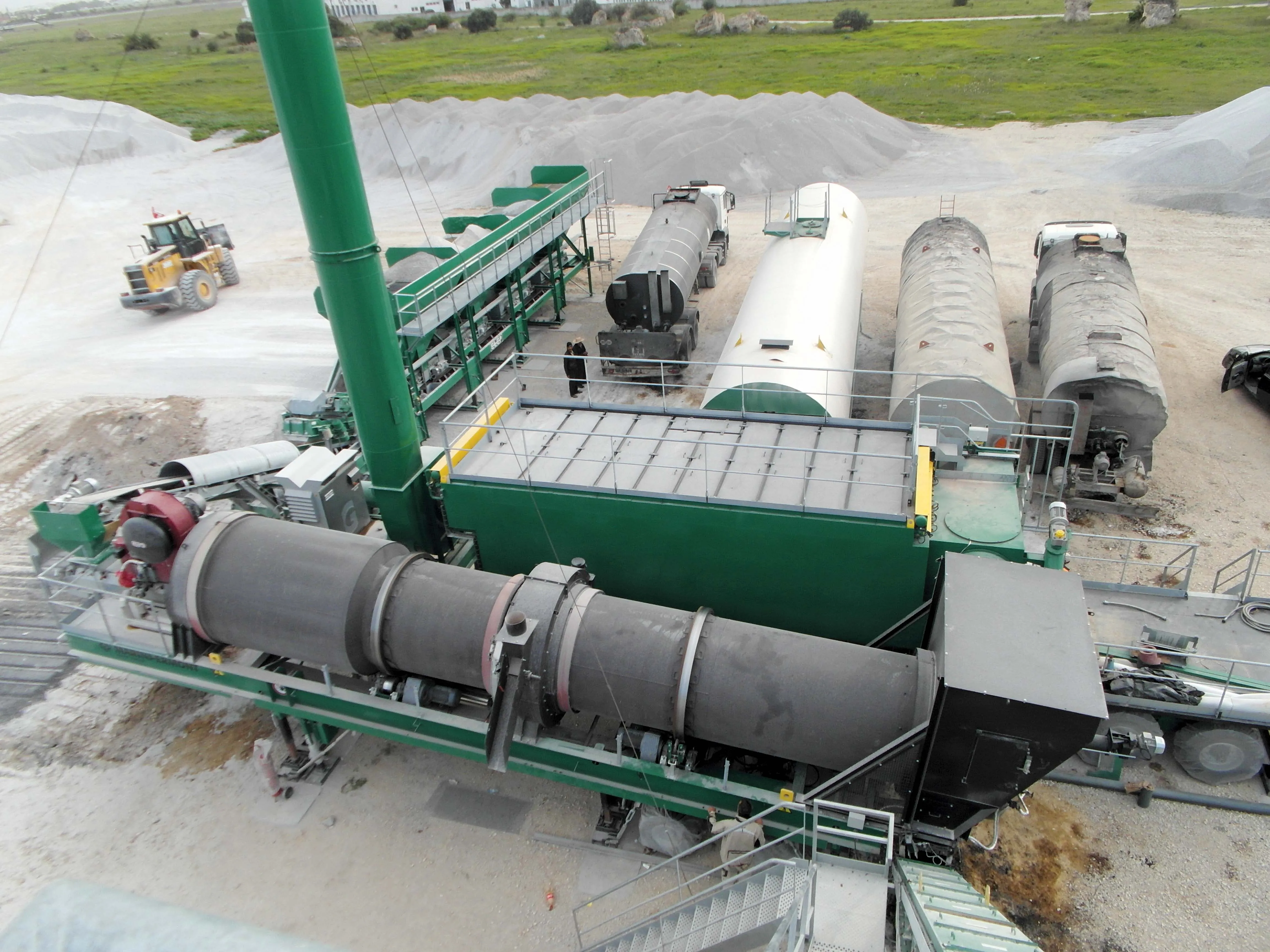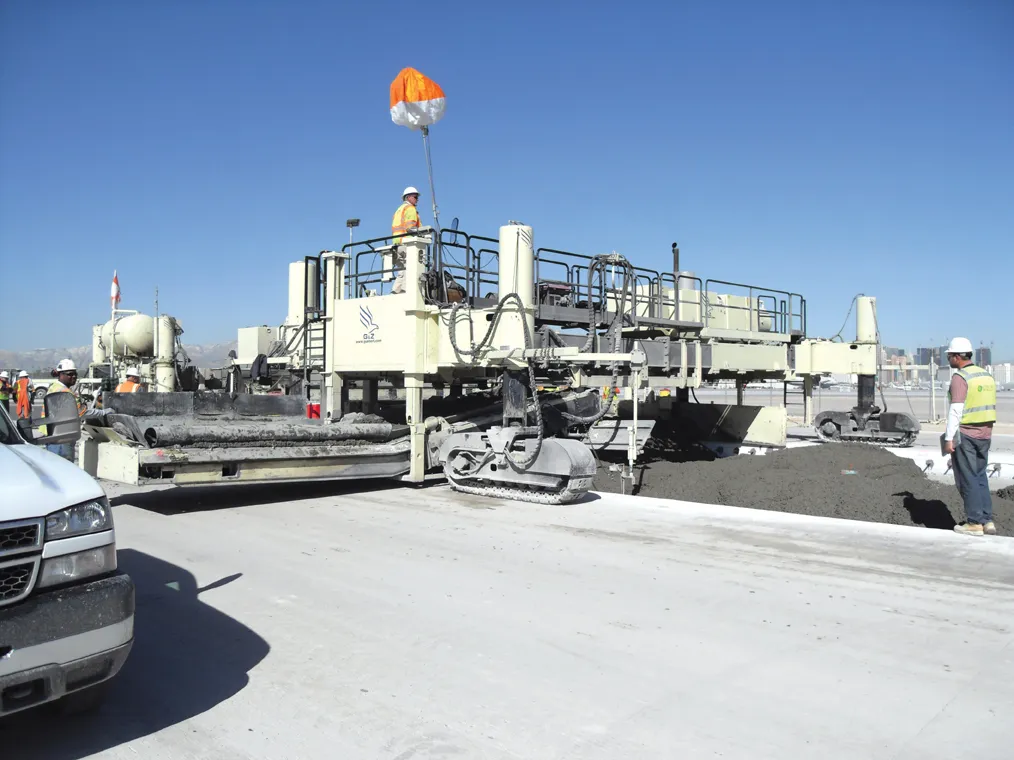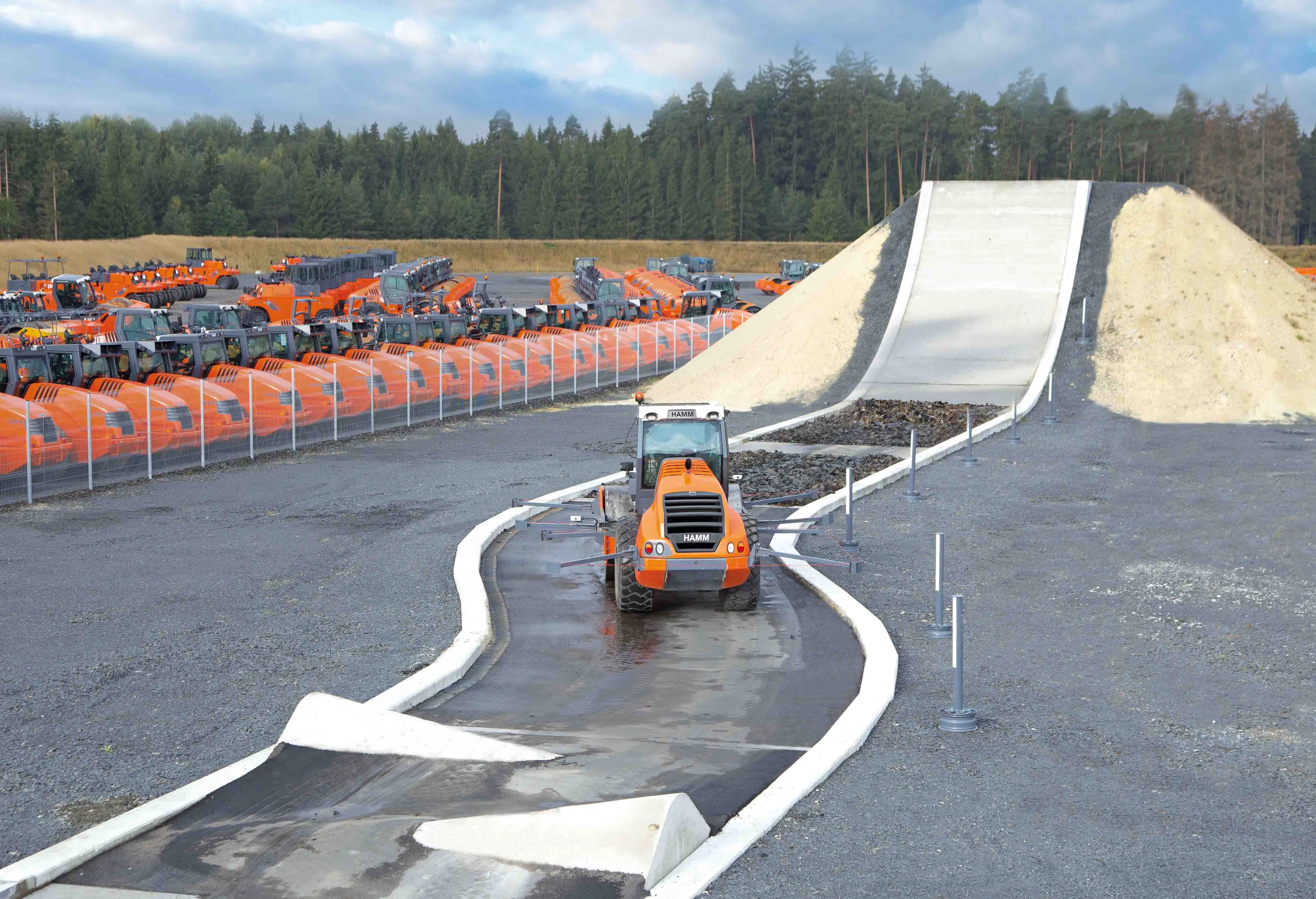A new airport project is benefiting from some of the latest developments in compaction technology
Work started on a new airport for Istanbul in June 2014, with the facility set to be one of the world's largest and to set new standards when it opens for business.
BOMAG has been playing a key role in the construction work at the new site, which is located close to the Black Sea coast. The construction equipment company has worked closely with the engineering team on site and BOMAG machines are now carr
February 7, 2017
Read time: 3 mins

A new airport project is benefiting from some of the latest developments in compaction technology
Work started on a new airport for Istanbul in June 2014, with the facility set to be one of the world's largest and to set new standards when it opens for business.
172 BOMAG has been playing a key role in the construction work at the new site, which is located close to the Black Sea coast. The construction equipment company has worked closely with the engineering team on site and BOMAG machines are now carrying out the largest compaction operation in the firm’s history, using over 130 single drum rollers on the project.
The columns of the terminal building have already been erected and provide a first impression of the dimensions to be expected at the new Istanbul airport. Upon completion, it will extend to some 8,000ha.
The construction site of the major airport is located about 35km north-west of Istanbul's centre, on the coast of the Black Sea. The area, which is a former open pit coal mine, features rugged terrain that has to be levelled. To do this requires the removal of 400 million m3 of soil and filling in any holes on the site. About 13,000 personnel are deployed on the construction site and they work seven days/week in two shifts totalling 20 hours/day. Meanwhile BOMAG machines are playing a key role in the work.
At the beginning of 2015, a fleet of no less than 136 BOMAG BW 226 and BW 216 heavy single drum rollers with padfoot and polygonal drums started operating on the construction site. Of these, 61 are equipped with the Bomag Terrameter (BTM) and 45 with the Bomag Compaction Management 05 (BCM 05) with GPS. Both systems are being used for the compaction control work. In five major areas alone, 20 rollers are in use in each zone. The surfaces are paved in 40cm layers and compacted, with the density specification requiring four passes for each machine.
To optimise the process for the roller drivers involved, depending on the type of material, a combination of four padfoot and/or polygon soil compactors drive behind each other on a lane. These are followed by a smooth drum roller that finishes and documents the compaction process.
One of the challenges posed is the daily compaction checks required. With around 2 million m2 being compacted/day, roughly 2,500 individual tests would usually be required. However this would be both costly and time-consuming. Instead, BOMAG's BCM 05 compaction control system and the BOMAG GPS system are providing a cost-efficient alternative. These packages monitor the surface and collect all the relevant data. This is then transferred to a central laboratory, which compiles and reads it. An external consultant responsible for approving the tested areas evaluates the resulting single documents, an average of 20/day, and checks the compaction processes. This provides complete documentation for the site and helps deliver greater operating efficiency overall.
The single drum rollers are still hard at work at the airport site, with the targeted opening of the first phase in February 2018.
Work started on a new airport for Istanbul in June 2014, with the facility set to be one of the world's largest and to set new standards when it opens for business.
The columns of the terminal building have already been erected and provide a first impression of the dimensions to be expected at the new Istanbul airport. Upon completion, it will extend to some 8,000ha.
The construction site of the major airport is located about 35km north-west of Istanbul's centre, on the coast of the Black Sea. The area, which is a former open pit coal mine, features rugged terrain that has to be levelled. To do this requires the removal of 400 million m3 of soil and filling in any holes on the site. About 13,000 personnel are deployed on the construction site and they work seven days/week in two shifts totalling 20 hours/day. Meanwhile BOMAG machines are playing a key role in the work.
At the beginning of 2015, a fleet of no less than 136 BOMAG BW 226 and BW 216 heavy single drum rollers with padfoot and polygonal drums started operating on the construction site. Of these, 61 are equipped with the Bomag Terrameter (BTM) and 45 with the Bomag Compaction Management 05 (BCM 05) with GPS. Both systems are being used for the compaction control work. In five major areas alone, 20 rollers are in use in each zone. The surfaces are paved in 40cm layers and compacted, with the density specification requiring four passes for each machine.
To optimise the process for the roller drivers involved, depending on the type of material, a combination of four padfoot and/or polygon soil compactors drive behind each other on a lane. These are followed by a smooth drum roller that finishes and documents the compaction process.
One of the challenges posed is the daily compaction checks required. With around 2 million m2 being compacted/day, roughly 2,500 individual tests would usually be required. However this would be both costly and time-consuming. Instead, BOMAG's BCM 05 compaction control system and the BOMAG GPS system are providing a cost-efficient alternative. These packages monitor the surface and collect all the relevant data. This is then transferred to a central laboratory, which compiles and reads it. An external consultant responsible for approving the tested areas evaluates the resulting single documents, an average of 20/day, and checks the compaction processes. This provides complete documentation for the site and helps deliver greater operating efficiency overall.
The single drum rollers are still hard at work at the airport site, with the targeted opening of the first phase in February 2018.









